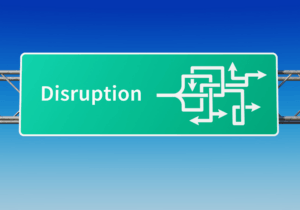The Skills Needed in the Era of Digital Disruption
The skills needed in the era of digital disruption are often posed as a crisis for project management professionals. The truth is, it’s the opportunity to focus on soft skills that spell success in this new future.
According to Gartner, by 2030, 80% of what we commonly think of as the work of project management will be eliminated.
Artificial intelligence (AI) will take on more traditional PM functions, think of tasks such as data collection, tracking and reporting. It’s safe to say that we are now well within the age of digital disruption and the project manager is not immune.
How do project management professionals adapt to this altering future?
Removing repetition and manual tasks
The good news is, the biggest technological impact will occur around repetitive or manual tasks. Think of things like data collection and management, risk management, budgeting, and scheduling – the “technical skills”.
Where the change is likely to take longer to impact is on the softer, more human skills.
Powering up in these kinds of skills, and leveraging the extra productivity that comes from automating those laborious technical skills, puts you in pole position to benefit from this ongoing wave of disruption.
The top reasons 70% of projects fail is a lack of executive support and emotional maturity. We look at poor user involvement, no optimisation and not having enough skilled staff.
Successful project managers know when a project starts to go off the rails and they also know how to get things back on track.
Their ability to communicate, influence and lead are what makes the difference.
A Little Self-Awareness goes a long way
Emotional intelligence
- Is the key to improving and cultivating behavioural skills. It requires self-awareness and the capacity to be aware of, control, and express one’s emotions. The ability to handle interpersonal relationships judiciously and empathetically is critical.
- The more you exercise your emotional intelligence the better you will be able to develop crucial soft skills such as these.
Communication
- Good communicators are aware of the types of language that is used. They assess both verbal and nonverbal they use as a project manager and of their stakeholders. By observing the communication patterns and learning styles of their stakeholders’ good communicators will adjust their own language patterns, cues and teaching styles to better match the preferences of their audience.
Leadership
- By checking your own ego and modelling “servant leadership” – where you actively submit to the greater goal of the project and put it front and centre. You have a better chance of setting a positive tone and behavioural guide for the team.
Motivation
- A project manager who pays attention to what motivates their team, how best to utilise their strengths and weaknesses and the rewards they value is more likely to out-do expectations.
- In a competitive market, keeping people satisfied and motivated is important in retaining them. This isn’t just so projects can be completed uninterrupted, but because we all want to work in supportive, positive environments.
Technology is changing the way we all work.
The kind of projects we do, and how we manage and motivate our stakeholders.
What’s not changing?
- We know the skills needed in the era of digital disruption are not digital.
- Take the opportunity that new technology provides to minimise the time you need to spend doing the “technical skill” stuff.
- Use that extra time to work on evolving and refining your behavioural skills.
- Like any muscle – we have to work on them to get the most out of them, it’s the soft skills that will most help in getting the job done successfully and positively.
- All of this will go a long way to set you up as a project management leader in the new digital age.
More importantly, we think it will make for a much more pleasant day at work.
Contact Us




